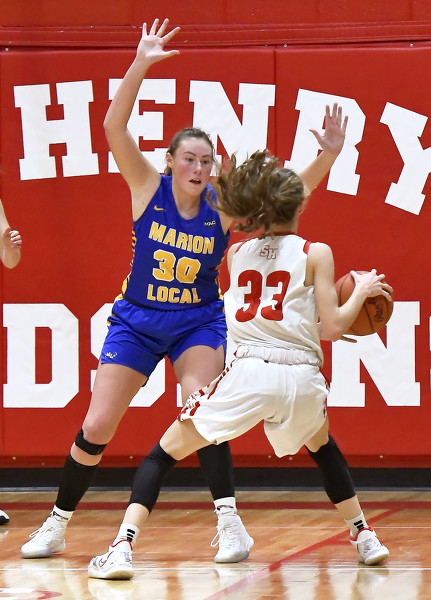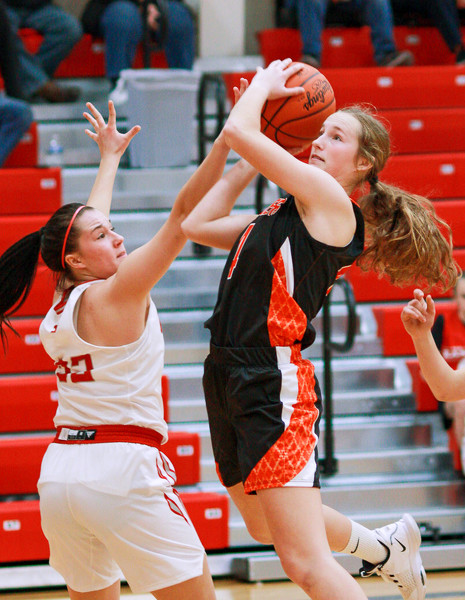Friday, December 10th, 2021
Council OKs engineering firm for $2.1M project
By Tom Millhouse
CHICKASAW - Councilors at their meeting Wednesday voted to authorize an engineering firm to seek bids on the village's long-awaited $2.1 million infrastructure improvement project.
Access Engineering will advertise for bids in early January and Mercer County commissioners will open the bids on Jan. 20. The county is handling the bidding process.
Council members reviewed the final plans prepared by engineer Craig Knapke and approved payment of $40,000 to Access Engineering for the Celina firm's work. The fee will be paid with Ohio Public Works Commission grant funds, said mayor Ben Kramer.
The northside improvement project involves the reconstruction of Wayne Street, including new water lines and storm sewer lines and Americans with Disabilities Act compliant sidewalks, and repaving state routes 274 and 716 in the village. Plans also call for the paving of Veterans, Virginia, Center, First, Roosevelt and Liberty streets, the eastern portion of Wayne Street and part of Mulberry Street. The project is expected to be completed by fall 2022.
Funding sources for the project include a $750,000 Community Block Grant Neighborhood Revitalization grant, a $160,000 Community Development Block Grant, a $500,000 Ohio Public Works Commission grant, a $510,000 Ohio Public Works Commission interest-free loan, $200,000 in Ohio Department of Transportation matching funds for paving state routes 274 and 716 in town and $30,000 in village money.
In a related matter, councilors agreed to delay discussion of the possible creation of the village's first income tax until next summer. Council had discussed at past meetings using an income tax to raise money to make $17,000 annual payments on a $510,000 interest-free loan as part of the financial package for the infrastructure project.
Kramer reviewed with council a letter he received from Mercer County Health District administrator Jason Menchhofer seeking input on plans for a possible ballot issue to raise money to recoup lost revenues and pay to lease office space after being advised by county commissioners the health district would have to move from the Central Services Building after being housed there rent-free for 20 years.
Kramer told council that Menchhofer outlined two possible options - either a five-year, 0.5-mill levy or a 0.25-mill levy. The owner of a $100,000 home would pay an additional $17.50 per year with a 0.5-mill levy and $8.75 with a 0.25-mill levy, according to the Mercer County auditor's online tax estimator and a 0.25-mill levy would cost the owner of a $100,000 home $8.75 per year.
Council members expressed no preference on either option.
Under the 0.5-mill option, municipalities would no longer make an annual payment to the health district, which in Chickasaw's case is $2,300 per year. If the cities and villages continue to pay their share, the millage would be 0.25 mill, Menchhofer noted in the letter.
Council members approved on rule suspension a temporary appropriations ordinance. Council must approve permanent appropriations for 2022 by March 31. Councilors agreed to review expenses during the first three months of 2022 before taking final action.
Under the appropriations document, general fund appropriations for 2022 were set at $90,839, down slightly from this year's figure of $91,773. The ending 2022 balance is projected to be $33,975, down from $42,714 in 2021. Spending from the street fund was set at $11,612, down $5,000 from this year.
A major change in the 2022 budget involves the village allocating $1.87 million in state and federal grants to be used for the infrastructure improvements. Expenditures for the water operating fund were set at $179,406, down from $181,142, and the ending balance was set at $245,188, down from $246,595. Appropriations for the sewer operating fund were set at $286,024, down from $252,219 this year and the ending balance was projected at $267,665. The balance for this year is projected at $276,089.
Councilors also:
• learned the park board has received a $1,000 grant from the village's insurance carrier to help pay for a security camera.
• decided that it would not be cost effective to adopt an online method for customers to pay village utility bills. Fiscal officer Kelly Poeppelman said it would cost $1,300 to set up and would involve a $250 per month fee. Councilor Jeff Pohl said the system "would be great" for residents who wish to pay their bills online, but the village doesn't have sufficient funds to take on the expense.
• voted to reappoint Judy Koesters as village solicitor at a salary of $100 per meeting, the same amount she currently receives.
• learned an easement agreement with Stan Homan has been reached for the proposed extension of a second water line to the Marion Community Industrial Park. If the water line is installed along Chickasaw Creek, the village would pay Homan $5,000 for the easement.
• requested the board of public affairs to consider revising the debt service charge paid by residential sewage customers living outside the village from the current 1½ times the charge for customers living in the village. This would make it the same as Chickasaw customers. BPA member Al Lochtefeld said the issue will be discussed in coming months. Although the higher charge is in the rate ordinance, council members said they thought that was not the intent of the council at the time.
• went into executive session to discuss the possible sale of village property. No action was taken.
The next council meeting is 7 p.m. Jan. 12 at village hall.

